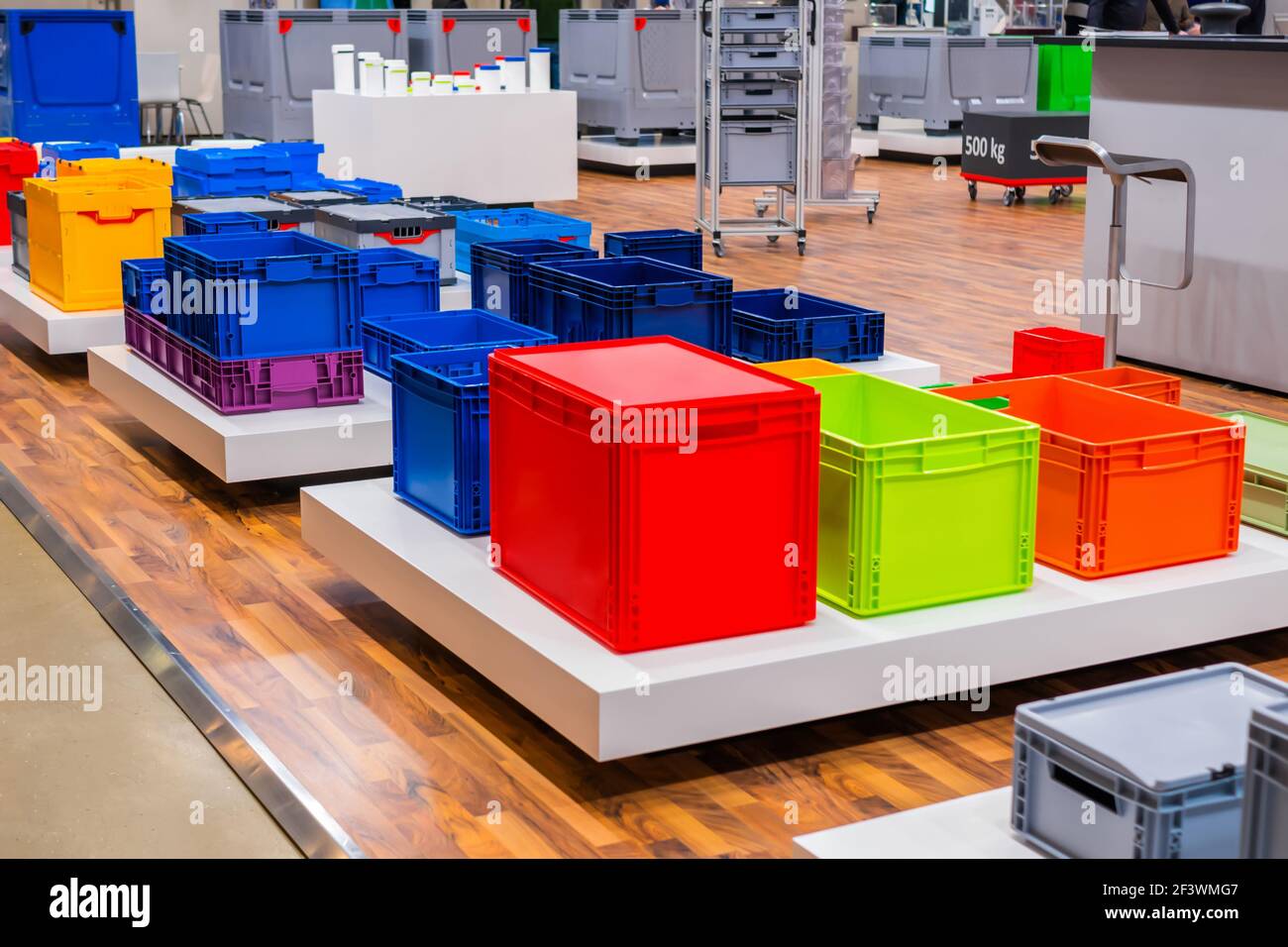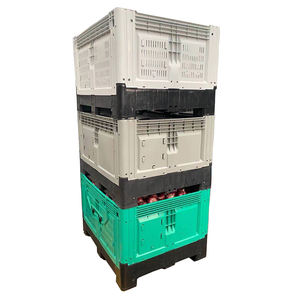Maximize Your Recycling Impact by Recycling Utilized Plastic Containers
The impact of reusing can be additional amplified by including the method of recycling utilized plastic containers (used bulk plastic containers). The possibilities are substantial, and the advantages are significant, making the undertaking of taking full advantage of recycling effect with reusing plastic containers a intriguing and rewarding method to discover.
Advantages of Reusing Plastic Containers
Reusing plastic containers not just lowers waste however additionally contributes considerably to environmental sustainability. By choosing to reuse plastic containers as opposed to discarding them after a single use, individuals can play a crucial duty in decreasing the need for brand-new plastic manufacturing. This technique straight equates to a decrease in the intake of basic materials, power, and sources needed for making brand-new containers.

Additionally, recycling plastic containers assists in decreasing the quantity of plastic waste that ends up in landfills or pollutes our oceans and natural habitats. Plastic pollution is a pushing worldwide concern, and by prolonging the lifespan of plastic containers via reuse, we can alleviate the unfavorable influence on the setting. Additionally, reusing plastic containers can lead to a decline in greenhouse gas emissions connected with the manufacturing and transport of new plastic products.
Essentially, the basic act of recycling plastic containers can yield considerable ecological benefits by saving sources, decreasing waste, and decreasing air pollution, making it an impactful and practical sustainability practice for neighborhoods and people alike.
Creative Upcycling Concepts for Containers
Considering the environmental advantages of expanding the lifespan of plastic containers through reuse, discovering innovative upcycling ideas provides an innovative technique to more sustainability initiatives. There are countless inventive methods to repurpose used plastic containers, contributing to throw away reduction and promoting eco-conscious habits. One innovative concept is to change vacant plastic bottles into self-watering planters by cutting the leading part of the container and creating a wicking system using a cotton string. This not only gives a new life to the plastic bottle however also helps in effective watering of plants. One more upcycling concept is to make use of huge plastic containers, such as laundry detergent bottles, as storage space containers for things like playthings, craft materials, or perhaps as makeshift planters for little interior yards. By repurposing these containers, people can reduce their environmental footprint while adding a touch of imagination to their every day lives. Welcoming such upcycling campaigns can motivate others to rethink the way they check out and use plastic containers, relocating in the direction of a much more lasting and ecologically friendly way of life.
Tips for Appropriately Cleansing Containers
Preserving sanitation in containers is necessary for making sure hygiene and extending their usability. To effectively clean made use of plastic containers, start by clearing any type of remaining components and rinsing them with warm water to get rid of food particles and deposit. For containers with stubborn spots or smells, create a mixture of equivalent components water and vinegar or baking soda and water, and allow it sit for a few hours prior to rubbing and washing completely. Stay clear of utilizing harsh chemicals or rough scrubbers that can harm the plastic. Additionally, see to it to dry the containers entirely before keeping them to prevent mold development. For containers with tight corners or little openings, think about making use of a bottle brush or tooth brush to get to all areas (used plastic bulk containers for sale). Frequently imp source evaluate the containers for indicators of wear and tear, such as fractures or staining, and change them if needed to preserve proper health standards. By adhering to these cleaning pointers, you can optimize the lifespan of your plastic containers and advertise a much healthier environment.
Exactly How to Store Reused Containers Efficiently

Influence of Reusing on the Atmosphere
Recycling containers has a substantial positive effect on the environment by decreasing waste and saving resources. It assists in reducing the amount of plastic waste that finishes up in seas or landfills when containers are reused rather of being disposed of after a single use. By prolonging the lifecycle of these containers, less new ones need to be produced, leading to a reduction in the consumption of raw products and power needed for manufacturing. This conservation of sources plays a critical duty in decreasing the ecological footprint associated with plastic manufacturing.
By reusing plastic containers, the need for new production reductions, resulting in reduced discharges linked with the production and transportation of new items. On the whole, the environmental benefits of recycling containers are significant and play a vital function in advertising sustainability and reducing the effect of plastic on the world.
Verdict
To conclude, reusing utilized plastic containers can dramatically decrease waste and reduce the ecological influence of single-use plastics. By artistically upcycling containers, properly cleaning them, and effectively keeping them, people can optimize their reusing initiatives and add to a more sustainable future. Making a mindful initiative to recycle plastic see here containers not just profits the environment but also encourages a more green way of life in general.

Comments on “From Waste to Resource: Buying Recycled Plastic Containers”